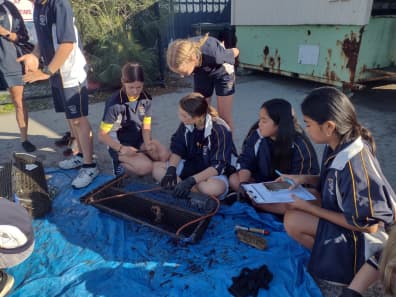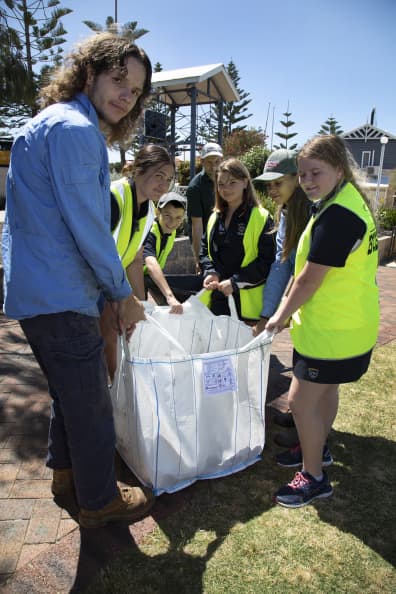Student shellfish researchers
Student shellfish researchers
12 September 2022
John Tonkin College students are becoming marine researchers to help develop a shellfish reef.
Year 7 students in the school’s specialist marine Surf Science program are learning all about mussels, including their habitat and ecosystem, with hands on research as part of a community initiative called the Shellfish Gardening Project led by The Nature Conservancy.

Year 7 students measuring mussels and taking notes.
Taking on a researcher role, each month students measure the mussels' growth, observing them from juveniles to adults, and taking notes on disease and parasitic activity.
Students have even tried their hand at mussel dissections.
John Tonkin College’s Head of Science Emma-Louise Moore said when staff heard about the mussel project, they expressed an interest for the students to participate as it’s a unique experience.
She said it was a great opportunity for students as it linked to the school curriculum.
“Mussels are biological filters, so it ties in with their learning about filtration in chemistry, ecosystems and human impact for biology, and water cycle and scarcity for Earth Science and Humanities and Social Sciences,” said Ms Moore.

Students measure the mussels every month.
“All our Surf Science students have a focus on their local environment.”
“Apart from the real-world curriculum opportunities for the students, their involvement in local community initiatives helps improve the local estuary and waterways.”
The students enjoyed watching their mussels grow and learning about how they can help the environment.
“Measuring the mussels is quite fun. It’s interesting how big the different mussels are,” said John Tonkin College student Aaliyah Hooper.
“The best part about doing the mussel project is finding all the different creatures in the crates that aren’t supposed to be in there, like little fish, crabs and prawns,” said student Amity Scott.
The data students collect will help the project grow 50,000 mussels from juveniles to adults in specially designed gardens and use the adults to create a new living shellfish reef.
The reef will go on to enhance local fish stocks, help improve water quality and boost the local economy by attracting eco-tourism.